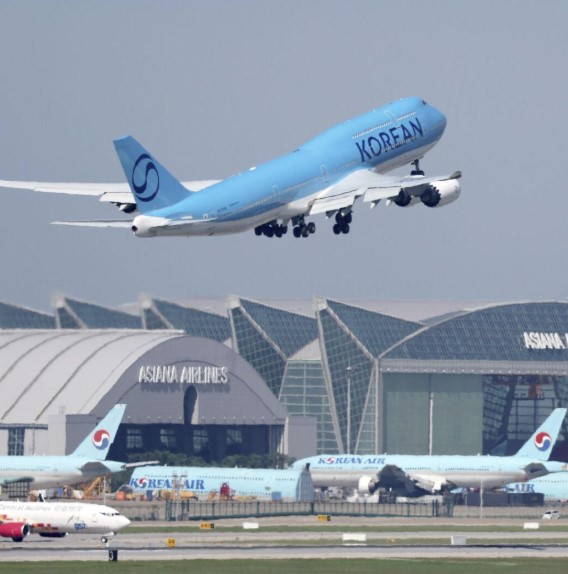South Korea sent a special charter plane to the United States to bring back hundreds of its workers after ICE conducted large raids. ICE carried out the raids on September 4 at a battery factory in Georgia. The operation caught more than 475 workers, including over 300 South Koreans. South Korean companies Hyundai and LG Energy Solution employed these workers at a new factory they are building.
Large Number of Workers Detained in ICE Raids
The situation shocked many people in South Korea. Videos released by the US authorities showed workers with chains around their hands, feet, and waists. These images caused anger and a sense of betrayal among South Koreans, who consider the United States an important ally.
ICE is holding the workers at a detention center in Folkston, Georgia. South Korean officials have worked with the US government to secure their release. They reached an agreement to allow the workers to leave voluntarily instead of formally deporting them. Deportation could impose long-term restrictions, including preventing the workers from returning to the United States for up to ten years.
Martial Law Chaos Leads to Historic Shake-Up in South Korean Politics
South Korean media reported that authorities would move the workers to Atlanta before they board the plane. Korean Air flew a Boeing 747-8i from Incheon International Airport near Seoul and expects to bring the workers back to South Korea by Thursday evening, US time.
ICE conducted its largest raid at the Georgia factory. The agency carried out the operation as part of broader efforts by the US to enforce immigration laws. South Korean companies are building more than 20 large industrial sites across the United States. The Georgia battery factory is one of the biggest and most important among them.
Visa Problems and Business Challenges After ICE Raids
The South Korean government has been negotiating with US officials to prevent future problems for its workers after the ICE raids. One major issue is that many Korean workers are entering the US with visitor visas or visa waivers that do not allow them to work. Companies used these visas because they urgently needed skilled workers to build factories and handle specialized equipment.
Experts pointed out that South Korea has been asking the US to create a better visa system for skilled workers, but US officials have not yet fully addressed those requests. Despite this, South Korea has invested billions of dollars in American projects and expanded its industrial operations.
The workers handled machines and equipment that US manufacturers cannot produce. Legal experts explained that it would take three to five years to train local workers to perform these tasks. This situation shows why South Korea sent workers to the US in the first place.
South Korea finalizes UN draft resolution on Iran sanctions amid snapback process
In response to the ICE raids, LG Energy Solution instructed its South Korean workers on short-term visas not to report to work. The company advised those using Electronic System for Travel Authorization (ESTA) to return home immediately.
South Korean officials also held meetings with major Korean companies operating in the US, such as Hyundai, LG, and Samsung. The government is working closely with US lawmakers to explore the possibility of creating a separate visa quota that would allow skilled Korean professionals to work in the United States without fear of legal trouble.
The US president stated that the workers had entered the country illegally and that new rules should be made to ensure that Americans are trained for specialized work like battery manufacturing.
Diplomatic Relations and Public Reaction
The immigration raid came at a sensitive time and has caused serious diplomatic concerns. Only days before the incident, leaders from both countries had met to discuss trade and investment. South Korea had also pledged significant investments in the United States to improve economic relations.
Despite this, the ICE raids have caused anger among many South Koreans. Some feel that the raids damage trust between the two countries. However, experts believe that South Korea will not take harsh retaliatory actions because the US remains a key military and economic partner.
A majority of South Koreans support the alliance between the two nations. This relationship, formed during the Korean War in the early 1950s, remains strong today. The US has military bases in both South Korea and Japan, which play a critical role in ensuring peace in the Asia-Pacific region.
South Korea’s ‘Sensitive Country’ Status Sparks Tension with U.S.
During a government meeting, South Korea’s leaders expressed concern over the ICE raids and stated their commitment to protecting Korean businesses operating abroad. They also announced plans to work closely with the US to improve visa systems and prevent similar incidents from happening in the future.
The situation is being carefully watched by governments, businesses, and citizens in both countries. The handling of the ICE raids will likely affect future cooperation between the two allies.

